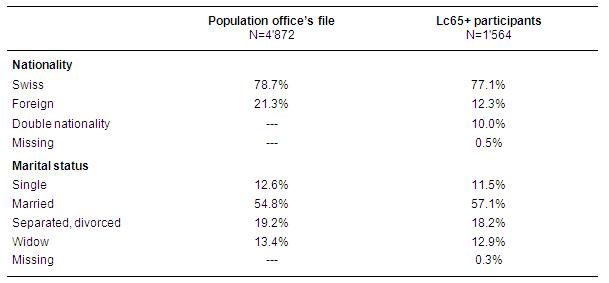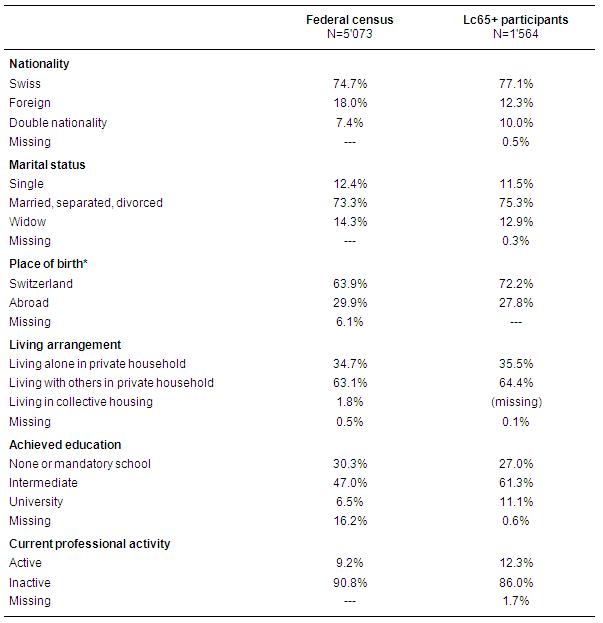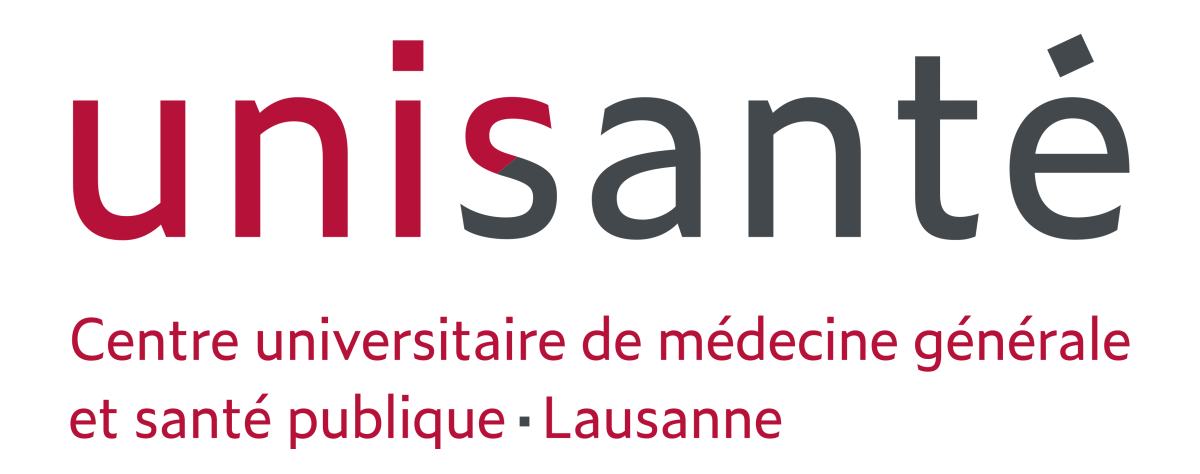Representativeness

Among individuals randomly selected for sample 1 (2004), sample 2 (2009) and sample 3 (2014), participants and non-participants showed no significant differences in the sex distribution or birth year distribution by sex.
Comparison of sex and birth year by sex between Lc65+ participants and non-participants, amongst 1'564 drawn in the first sample (2004) :
Comparison of sex and birth year by sex between Lc65+ participants and non-participants, amongst 1'489 drawn in the second sample (2009)1 :
Comparison of sex and birth year by sex between Lc65+ participants and non-participants, amongst 1'678 drawn in the third sample (2014)1 :
Sample 1 (2004) :
Although variables were not defined identically in the Lc65+ study and references that allow some comparison with the same age in the overall Lausanne population, analyses of sample1 indicated a very similar distribution of:
- nationality and marital status compared to aggregate data from the Lausanne population’s office;
- nationality, marital status, country of birth, living arrangement, and professional activity compared to aggregate data from the 2000 Federal population census. However, we noticed an over-representation of subjects with university education in the Lc65+ cohort (11.1% versus 6.5% in the general population); a clearly higher proportion of missing data for this characteristic in the Federal census (16.2% versus 0.6% in the Lc65+ study) makes interpreting this difference difficult.
Comparison between Lc65+ participants in 2004 and the Lausanne population of the same age in the city Population Office’s file

Comparison between Lc65+ participants in 2004 and the Lausanne population of the same age in the 2000 Federal population census



